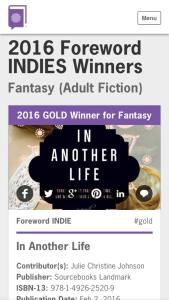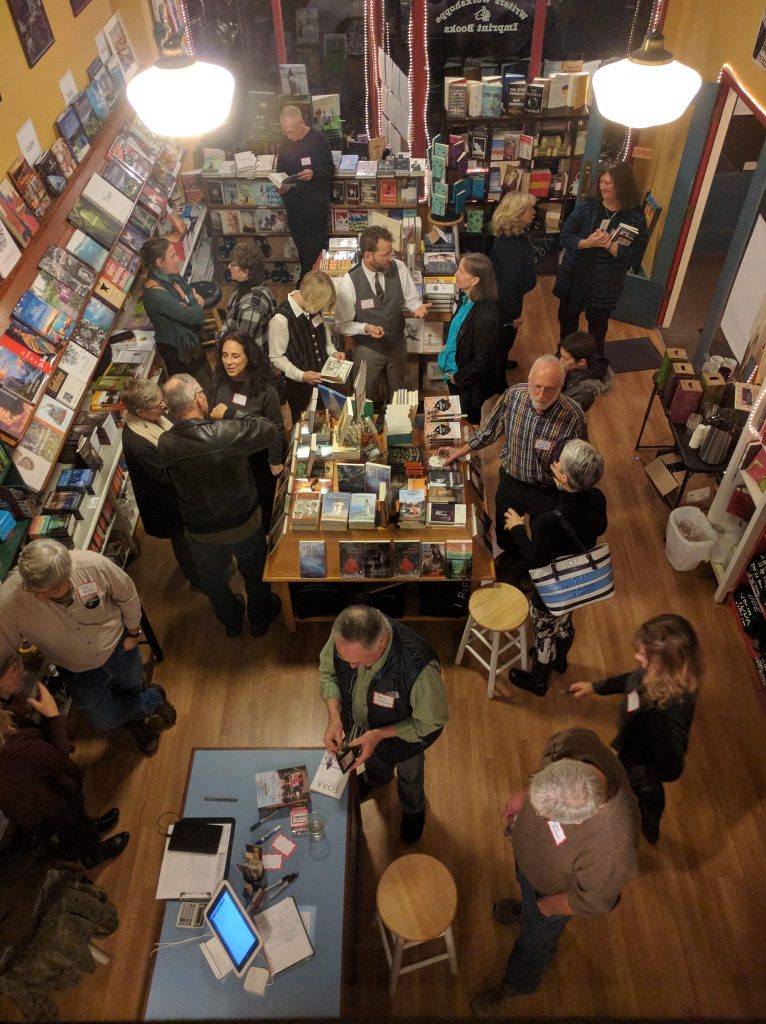Eighty-four thousand six-hundred and fifty-seven words. A premise that came fully-formed during a walk through the forest on a late afternoon in May of 2018. It seemed so simple, that bright and shiny idea, just a filling in of details and I’d have it. Nearly eighteen months later, after those stolen pre-dawn moments and weekend afternoons in a café, the Julys and Augusts where I didn’t write at all, a new writer’s group that filled me with inspiration before it fizzled out from life’s demands, a five-day DIY writer’s retreat that likely saved this entire endeavor from the DELETE key, and at last, there is a first draft.

I typed THE END late Sunday afternoon, the sun falling down behind the bony, stripped trees in our backyard, distant sounds of a football game in the living room breaking through when the classical music on the bedroom Bose paused for a breath. My goal had been to finish this draft by Christmas but as the words began to flow this autumn — I wrote nearly forty percent of the draft in the two months between late September and Sunday — I closed in on Thanksgiving as a target date. And here I am with .pdfs of Thanksgiving dinner recipes and 303 pages of THE DEEP COIL to send to the unsuspecting printer.
During the journey of this draft I spent a lot of time trying to escape from writing, until at last it became something I was able to emerge into. This was the second “from-scratch” novel I’d attempted since my marriage fell apart in the spring of 2016 when I was promoting the debut of IN ANOTHER LIFE, editing THE CROWS OF BEARA to prep for its fall 2017 publication, and revising UPSIDE-DOWN GIRL. From November of 2017 to May of 2018 I worked half-heartedly on a YA fantasy novel inspired by the research on the Cathars I’d done for IAL (I love it, actually; just not the right work at the right time). I’d underestimated the time and space I needed to do all heavy lifting of my messy life – new jobs, new relationships, moving, grieving, celebrating, gathering all the pieces and reassembling them into something that resembled a fresh start. I was hard, so very hard, on myself youshouldbewritingyourenotawriterwhyarentyouwriting until I finally gave in and accepted that when it was time, when I at last felt safe, I would write.
This draft is, well, it’s a Shitty First Draft, as first drafts tend to be. I got it in my head that because this is a genre novel — crime fiction — not to mention the start of a series, I ought to come up with a solid outline. That never happened- it’s not the writer I am. I write by feel. I write to find out where I’m going.
“Stories are agile things. So the containers they go in should be pliable. You should have a grand vision, of course, an eventual endpoint, or at least the dreams of an endpoint, but you must be prepared to swerve, chop and change direction at the same time. The best journeys are those where we don’t exactly know what road we will take: we have a destination in mind, but the manner of getting there should be open to flux. … the structure is forever in the process of being shaped. You find it as you go along. Chapter by chapter. Voice by voice. You have to trust that it will eventually appear and that it will make sense.” — Colum McCann, Letters to a Young Writer
Last spring I realized that this first draft would be my outline. So here it is, an 84,657 word outline. There’s a beginning, a couple of them, really. A bunch of words stuffed in the middle, and some possible endings. There are subplots and backstory, landscapes and dialogues. There are great characters whom I can’t wait for you to meet, shadows of beings who may stay or may go, others I’ve lost track of along the way. There are scenes that even now I know I need to write. I have a number of law enforcement officials to interview regarding who does what in a territory that covers two small cities, two large counties, and a vast national park in between. Several hikes to take, a shooting range to step into, and a gun expert friend to run key scenes by.
Revision. Where all that gorgeous raw material is shaped into a story.
But today I hold the story that will be in tender respect. The magical first draft, with all its promise and potential, is complete.
“How do you make a book that anyone will read out of lives as quiet as these? Where are the things that novelists seize upon and readers expect? Where is the high life, the conspicuous waste, the violence, the kinky sex, the death wish? Where are the suburban infidelities, the promiscuities, the convulsive divorces, the alcohol, the drugs, the lost weekends? Where are the hatreds, the political ambitions, the lust for power? Where are speed, noise, ugliness, everything that makes us who we are and makes us recognize ourselves in fiction?”
― Crossing to Safety










